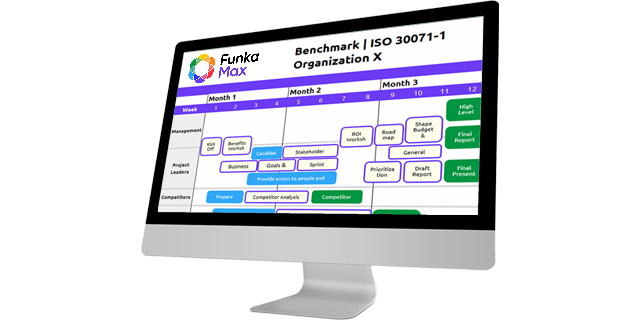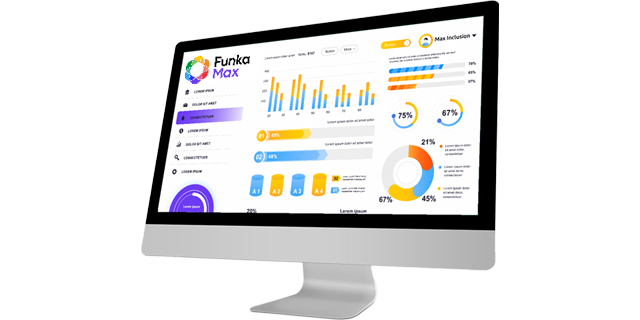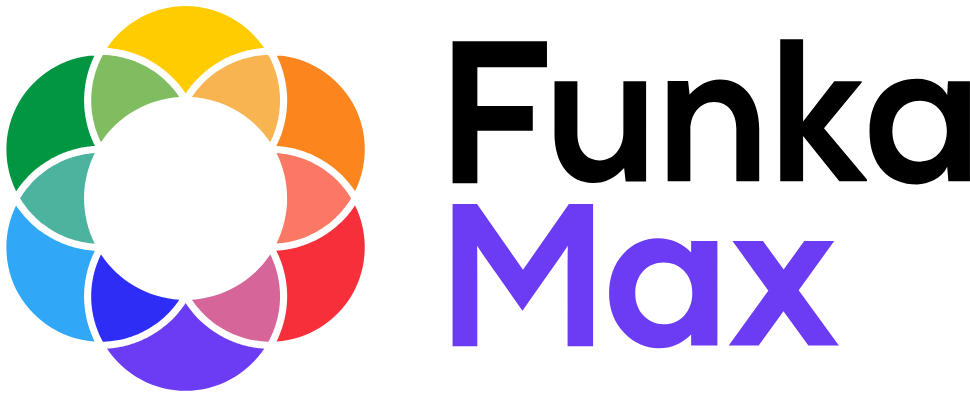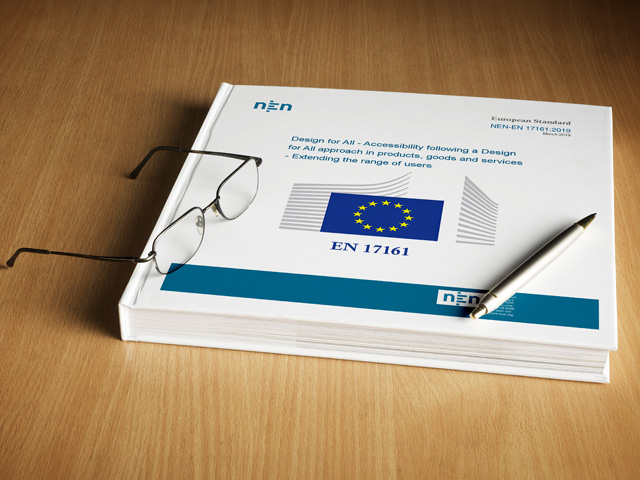What is EN 17161
EN 17161 is a standard developed by the European Committee for Standardization (CEN) titled “ Design for All – Accessibility following a Design for All approach in products, goods and services – Extending the range of users.
It specifies requirements that enable an organization to design, develop and provide products, goods and services so that they can be accessed, understood and used by the widest range of users, including persons with disabilities.
This document specifies requirements and recommendations that enables an organization to extend their range of users by identifying diverse needs, characteristics, capabilities, and preferences, by directly or indirectly involving users, and by using knowledge about accessibility in its procedures and processes, helping to comply with e.g.: the European Accessibility Act (EAA), the Web Accessibility Directive (WAD), Section 508, and more.
The requirements and recommendations set out in this document are generic and are intended to be applicable to all relevant parts of all organisations, regardless of type, size or products and services provided.
The reason why EN 17161 is important
It enables entire organizations to excel in a Design for All approach and assists product teams in implementing accessibility standards during the product development process.
Organizational Support
- Developing strategy to derive tangible accessibility benefits.
- Ensuring inclusive practices across a range of digital products.
- Evaluating accessibility risks and impact on budgets.
- Acquiring accessible internal and external digital tools.
- Facilitating trouble-free outsourcing to third-parties.
Product Guidance
- Considering the diverse purposes and target audiences of products.
- Utilizing guidelines for creating digital applications.
- Integrating accessibility into sprint and test planning.
- Ensuring that technology enablers can deliver accessibility.
- Effectively prioritizing accessibility fixes.
- Developing accessibility statements to mitigate potential launch risks.

Context of Organization
- Accessibility following a Design for All approach
- Understanding the organization and its context
- Understanding the needs and expectations of interested parties
- Determining the scope of the Design for All approach within the organization
- Integration with established process systems
Leadership
- Leadership and commitment
Policy
- Organisational roles, responsibilities and authorities
Planning
- Actions to address risks and opportunities
- Design for All approach objectives and planning to achieve them
- Planning for changes

Support
- Resources
- Competence, Awareness
- Communication
- Documented information
Operation
- Operation planning and control
- Design and development of products and services
- Planning to extend the range of users
- Identifying the intended users
- Requirements to extend the range of users
- Realization, Evaluation, User involvement
- End-to-end chain in relation to accessibility
- Control of and communication with external suppliers
Performance evaluation
- Monitoring, measurement, analysis and evaluation
- User feedback
- Analysis, Evaluation, Internal audit
- Management
How to win in digital accessibility using EN 17161 and ISO 30071-1
Investing in digital accessibility is a moral imperative and a smart business decision.
In today’s digital age, where technology dominates almost every aspect of our lives, digital accessibility has become a crucial consideration for businesses.
Why should you invest in Digital Accessibility?
Embracing accessibility benefits not only people with disabilities, older people, and other diverse users but everyone!

Six key benefits why EN 17161 will improve your business
Highlighting the key benefits why companies should prioritize and invest in digital accessibility.
- Expanding Customer Base
- Legal and Regulatory Compliance
- Ethical and Social Commitment
- Innovation and Creativity
- Competitive Advantage
- Improved User Experience
We help organizations
Gap-Analysis

Comprehending the current status of your organization’s culture and processes through an evaluation of the relative performance in delivering inclusive and accessible products and services.
Maturity Progress

It is insufficient to make individual products in an organizational silo accessible. It is of critical importance that an organization establish repeatable internal processes and methods.
Accessibility Audits

Audits for accessibility provide insights into whether the product already built conforms to the global standard WCAG (Web Content Accessibility Guidelines).
Enablement and maturity from the top down
“The technology to enable most information technology for accessibility has existed for the past decade, so why isn’t all IT accessible yet?
One main culprit is the lack of commitment to IT accessibility policy, planning, process integration, and other factors that drive organization-wide accessibility enablement and maturity from the top down.”

Strategic Advisor

